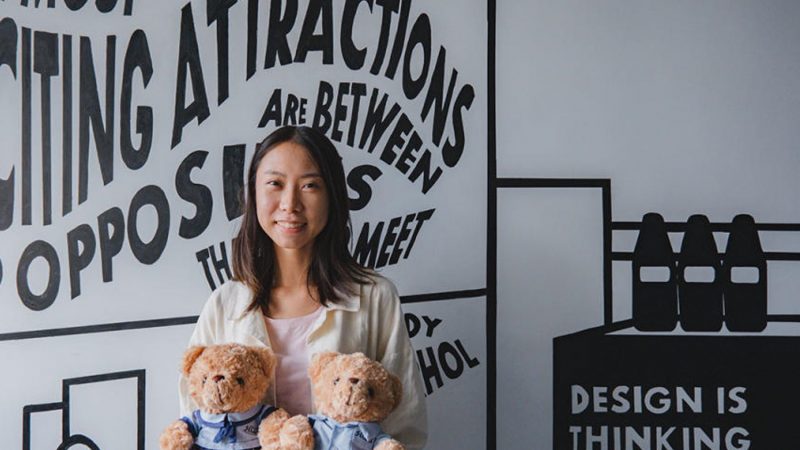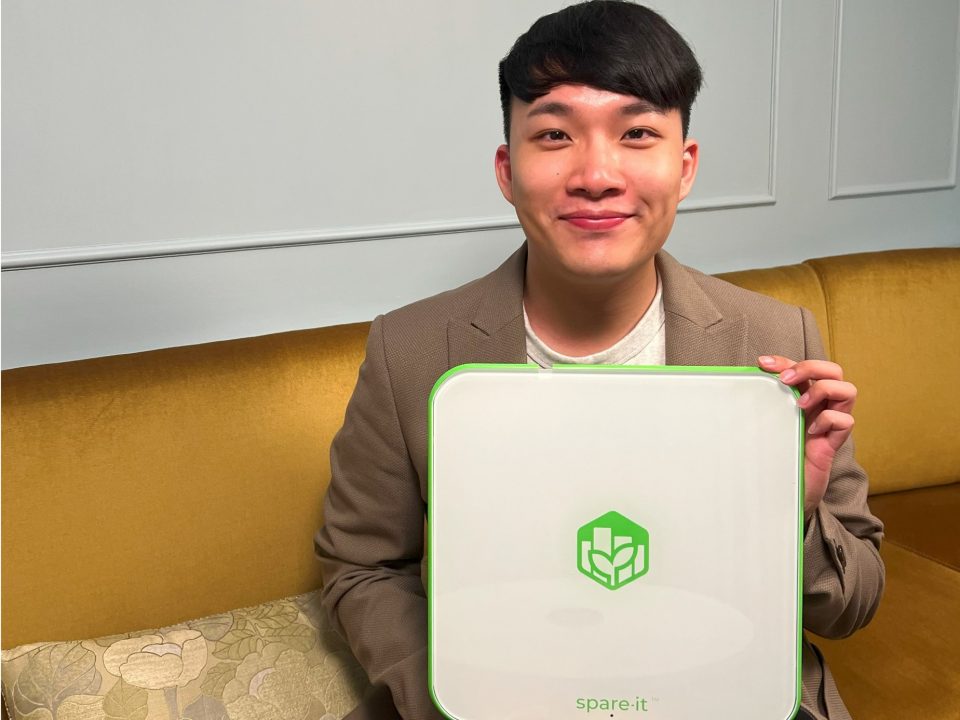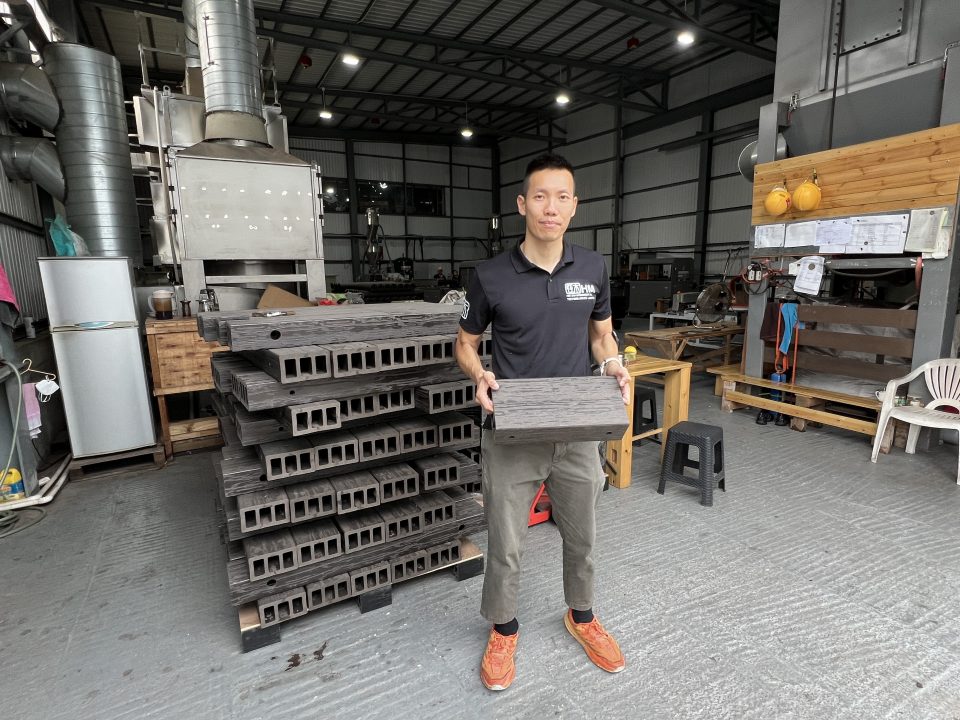
Cornerstone Smart Recycling: Setting the Foundation of Sustainability with Automated Recycling
June 14, 2024
HM Environmental Technologies – Utilisation of Timber Waste: Minimising Used Wood and Exploring Innovative Technology for a Sustainable Future
July 8, 2024Dress Green: The Green Army in Upcycled Uniforms
They say there’s always light in plight, this is especially true for Emma Yu, Co-founder and Creative Director of Dress Green. During the pandemic, the workload was reduced. She made the decision to resign from her previous job at a travel agency to participate in an entrepreneurship competition with her partner Victor Pang (now become her husband), setting themselves on a path of sustainable fashion they never looked back from.
| Dress Green is a social enterprise founded by Emma Yu and Victor Pang in July 2021. As a graduated company of the Design Incubation Programme of Hong Kong Design Centre [1], Dress Green combines sustainability, art, and education to inspire creativity and raise awareness of resource circularity. The brand aims at achieving sustainability, empowerment and education through the recycling and upcycling of used school uniforms, organisational uniforms and textiles. They also hire retired or unemployed senior female textile workers and tailors, and offer upcycling workshops for schools and corporations. The brand’s clienteles include Adidas, Hongkong and Shanghai Hotels, HK Electric and Kerry Properties. The team consists of Emma as Creative Director, Victor in charge of operations, one full-time designer, as well as a sewing team formed by people from different backgrounds. Within just over 3 years since its establishment, Dress Green had already won multiple awards, including the DFA Design for Asia Awards 2022 – Merit [2], Hong Kong Smart Design Awards 2022 – Green Award Finalist (Corporate Promotional Gifts) [3], REBORN! Upcycling Design Award 2023 – Silver, and Singapore Good Design 2023 – SG Mark Special Mention (Sustainable Design) [4]. |
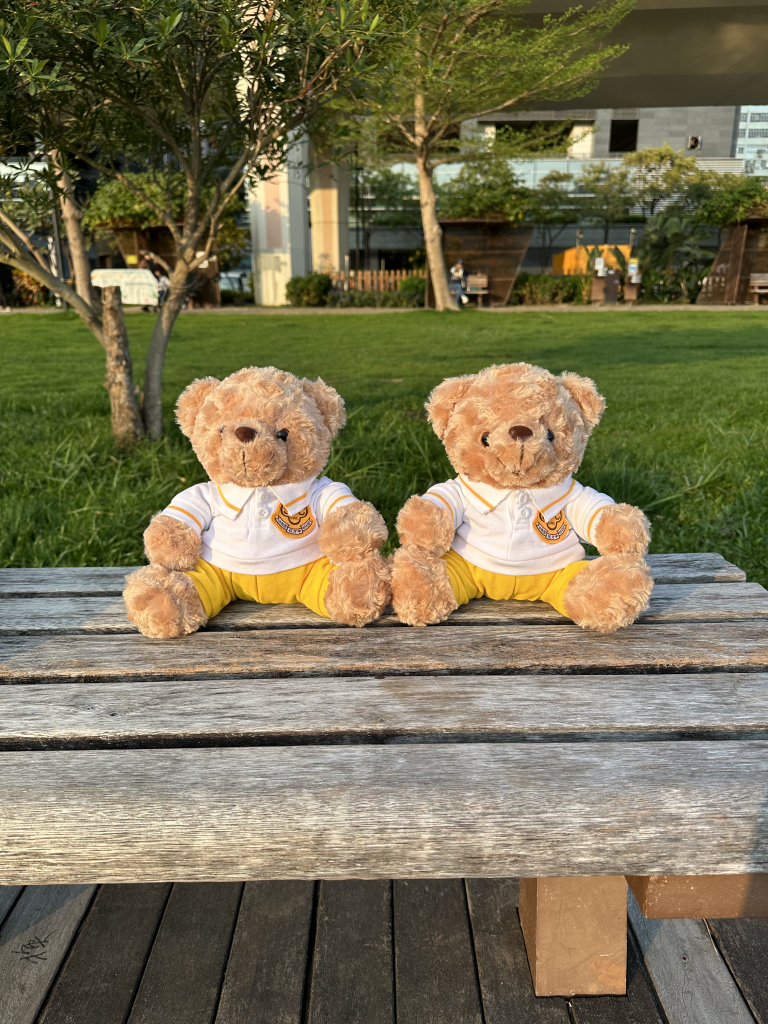
Weaving a Green Future through Goal-Oriented School Uniform Recycling
[Innovation]
The UNI Bear is the most well-known product of Dress Green. An iconic character of the brand’s UNI Green series, the bear dressing in upcycled uniform or casual wear is popular among schools and corporates – The Peninsula Hong Kong being one of them. The century-old hotel appointed Dress Green to produce a Peninsula bear, which old uniforms of Peninsula doormen and chefs were recycled to create the bear’s doorman costume, and feathers from the hotel’s old mattresses turned into the stuffing. The beloved cub aside, Dress Green offers a wide range of customisable products, from tote bag, pen case, cushion to accessories the like of hat, card holder and hair band.
Talking about the reason for recycling school uniforms in the first place, Emma explained, “Fashion is the third largest source of pollution in the world. We set to do sustainable fashion right from the start, when we joined the entrepreneurship competition.” And soon enough Emma discovered a loophole of recycling used clothing – there’s no recycling targeted specifically at school uniforms. “Children grow fast; every one to two years they’ll have to change their uniforms,” continued Emma. “And the problem only worsened during the pandemic, when most uniforms, in mint condition, were not needed during lockdown and were thrown away.” That’s how she started recycling old school uniforms and transforming them into new designs with the help of her reliable sewing team. Although the goal is to reduce the pressure on landfills, Dress Green is also business-minded and pays attention to the sustainability of its business model. Emma understood that doing business is all about setting clear goals and knowing your own capacity. “I learnt a lesson when I first started – we were overwhelmed by the sheer quantity to be handled, not to mention the unexpected workload and limitations to sort and treat various types of fabrics.” That’s why the types of recyclables at Dress Green boiled down to school uniforms coming from schools, and uniforms or textiles their clients specifically requested to recycle, instead of everything from individual collection points.
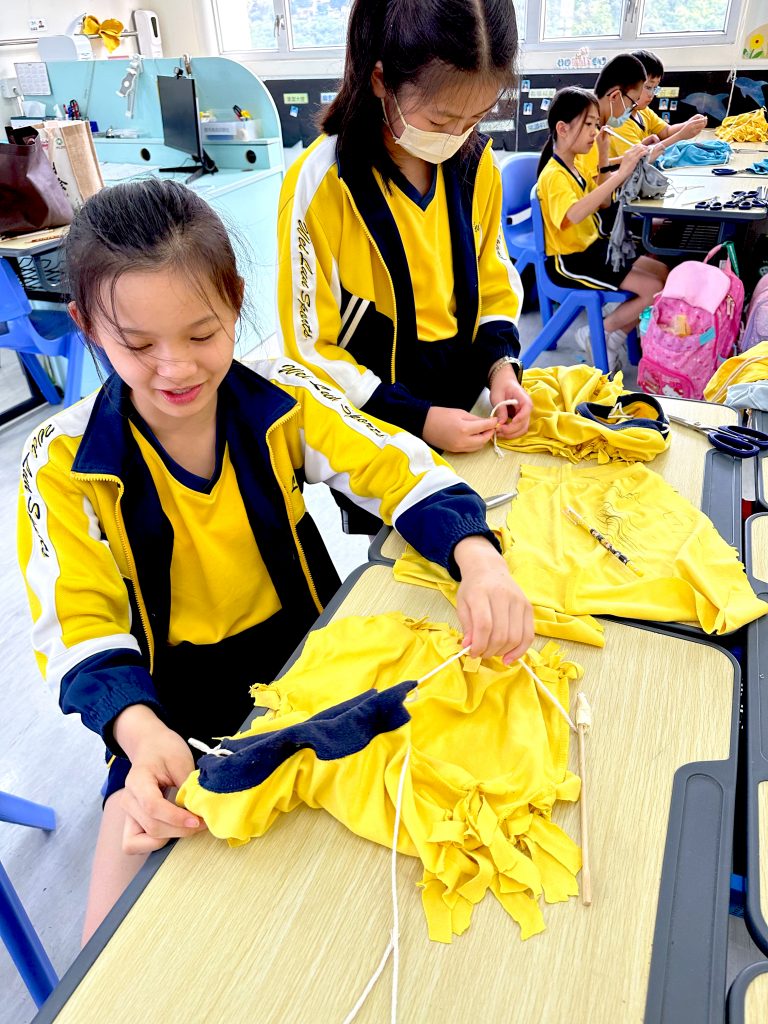
Educating Clients by Customising Workshop Contents
[Customer Supplier Relationship]
Dress Green’s existing clients primarily come from two groups: schools and corporates. It aims to promote the art of combining sewing and upcycling. The brand runs a UNI Green School Programme, where participating schools first collect old uniforms and let parents decide whether to reuse; Dress Green then upcycles the remaining or worn-out uniforms into school souvenirs or materials to be used during student sewing and upcycling workshops. The Programme conveys the message of sustainability.
For the corporate clients, Dress Green also provides services such as recycling and upcycling products and holds workshops. These activities are held in different formats and scale based on the objectives specified by different types of companies. “There is a huge difference in the goals, for example, between MNCs (multi-national corporates) and local companies.” Emma remarked. “MNCs, in general, want to infuse ESG (Environmental, Social and Governance) and sustainability education into the workshop. Our first project was an online lunch-time workshop for Adidas, where the brand hoped to teach the staff about sustainable fashion. In that case, we had to not only add relevant educational contents on sustainability, but plan ahead for the way to demonstrate, camera angle for shooting and allocation of time.”
On the other hand,” said Emma, “many local companies would like to build or promote their brand image. The audience is mostly the general public, members or VIP customers. So we’ll need to adjust the workshop message and format according to the background, age and number of participants of that specific workshop.”

Educating Clients by Customising Workshop Contents
[Customer Supplier Relationship]
The sewing team of Dress Green is formed by retired or unemployed senior textile workers, tailors, housewives and new immigrants who worked in the garment industry. The brand does not favour a particular gender. Since the production amount differs from order to order, the social enterprise adopts a flexible work arrangement to help the team meet their personal needs and obligations. Emma explained, “Hong Kong’s textile manufacturing was thriving during the 1970s and 1980s, and these workers and tailors all have excellent skills. It’d be such a waste if they’re just forced to ‘retire’ in this fast fashion era!”
“Not to mention that there are as many as 10 to 20 steps in every single piece of our products; we need sewing experts to act as the instructor for sewing rookies in each workshop, too.” continued Emma. “So it’s only justified if we collaborate with these seniors. Having them here can not only allow them to pass down the precious but disappearing skills while earning an income they deserve, but also enrich their retired life, engage and include them back to the society, as well as empower them and rebuild their confidence.”
At the same time, Emma hopes to cultivate successors to join the industry by offering internship opportunities under the Jockey Club CoCoon Student Training in Entrepreneurship Programme STEP Eight. Looking ahead, she’ll continue to work on recycling, empowering and education through exploring new recycled materials and new product categories, such as masks and utensil sets.
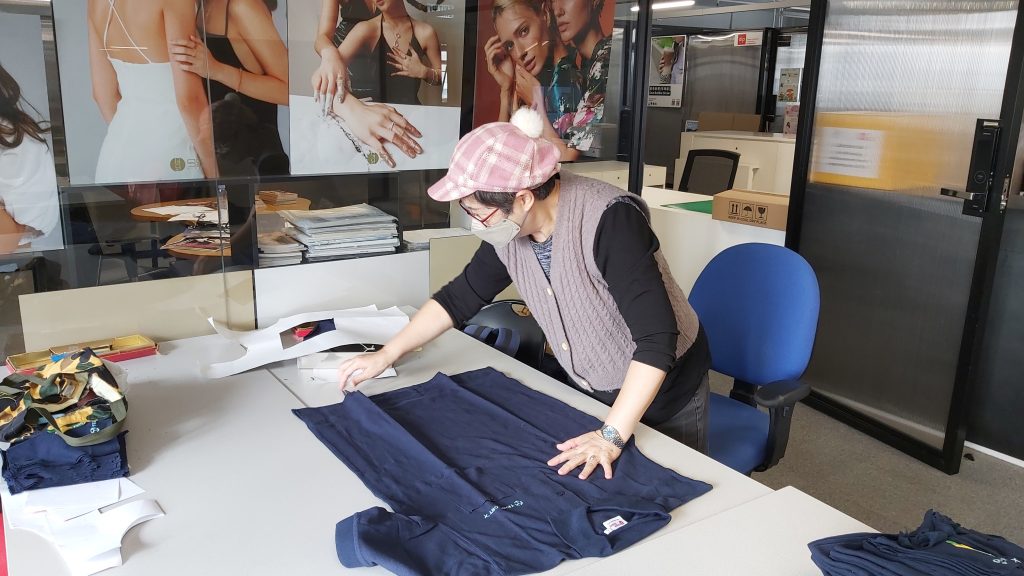
Dress Green is one of the winners of Reborn! Upcycling Product Design Award 2023. The Award aims to provide exposure opportunities for upcycling designers and businesses, to encourage sustainable development and environmental protection, and to be inspired by exchanging ideas with government groups, corporates, and environmental groups. The Award is initiated by Junior Chamber International (JCI) Hong Kong Jayceettes, and the Centre for Civil Society and Governance, The University of Hong Kong, is the strategic partner.
[1] Hong Kong Design Centre – Design Incubation Programme – Dress Green page (https://www.hkdesignincubation.org/?route=incubation_inner&category=0&company=359)
[2] DFA Design for Asia Awards – Winners page (https://dfaa.dfaawards.com/tc/winner/ )
[3] Hong Kong Smart Design Awards – Winner profile of Dress Green (https://www.sdawards.org.hk/winner/detail/2022/3341 )
[4] Singapore Good Design – Winners page (https://zh.sgmark.org/winners-2023/ )



